After part one of our blog post about the highlights of the individual festival days, we have now reached part two on the festival Friday. Just in time for the start of the weekend, the program items do not cease, quite the opposite: They present themselves even more numerous, even more exciting and even more diverse! You have our guarantee: There is just the right event, the right workshop or the right exhibition for everyone.
Friday, Sept. 10, 2021 – Take this: The New Digital Deal!
Climate justice, sustainable digitalization, solidarity and care, low-carbon design and education, and last but not least a good dose of solar punk – all indispensable ingredients of a “New Digital Deal” and therefore also topics of the all-day conference of the same name on Friday. The conference is curated and led by Michelle Thorne, Chris Adams, Christine Lariviere, Andres Colmenares and Alex Deschamps-Sonsin, all of them creators of „branch“, an online magazine “written by and for people who dream of a sustainable and just internet for all” that won the „Award for Digital Humanity“.
Not only the conference, but also an exhibition is explicitly dedicated to the “New Digital Deal” and the many facets in which the digital manifests itself in our lives today. The exhibition is not simply a stocktaking, as it is always about the meaningful potential that digital technologies could unfold for our society. It is therefore highly doubtful that it will soon no longer be the dog but a smart robot modeled on him that will be our “best friend” („Fascination Robotic“) – and yet the four-legged robot is the perfect example of how we often have the wrong discussions when it comes to technology. Instead of a polarizing “technology-will-replace-everything!” a “how-can-technology-usefully-expand-our-possibilities?” would be helpful. Such meaningful applications are then also the subject of the large exhibition on the festival theme, in which one first gets lost in order to orient oneself and then to get lost again. For example, it will be shown how an emergency ventilator for COVID patients can be created from medical aids available everywhere and an electronic open-source module (“Eurus“), how blockchain can be used in the sense of fair social and technological knowledge transfer (“1HWork“), or how mobile robots can use the reflection of millimeter waves for safe navigation through fog or dust clouds (“Magic Eye“). In between, the question arises as to why we do not – or are far too hesitant to – deploy such convincingly good solutions, while we use other technologies on a daily basis, even though they entail high social or ecological follow-up costs? How little we are aware of how far tech companies actually go in order to profit from our weaknesses, insecurities, illnesses and addiction potentials is demonstrated by the artist group “Laokoon” with an extraordinary (data) experiment (“Made to Measure“).
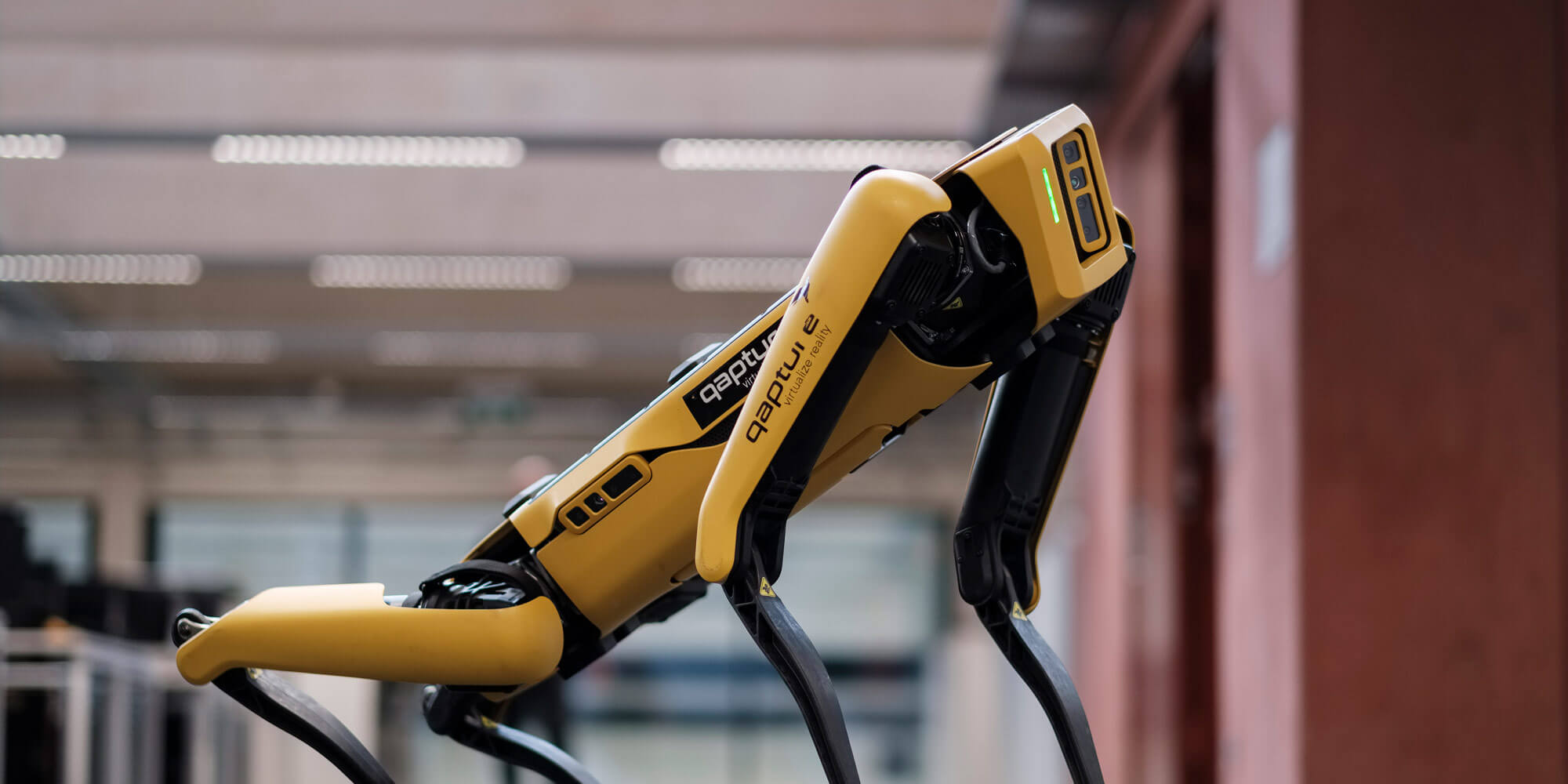
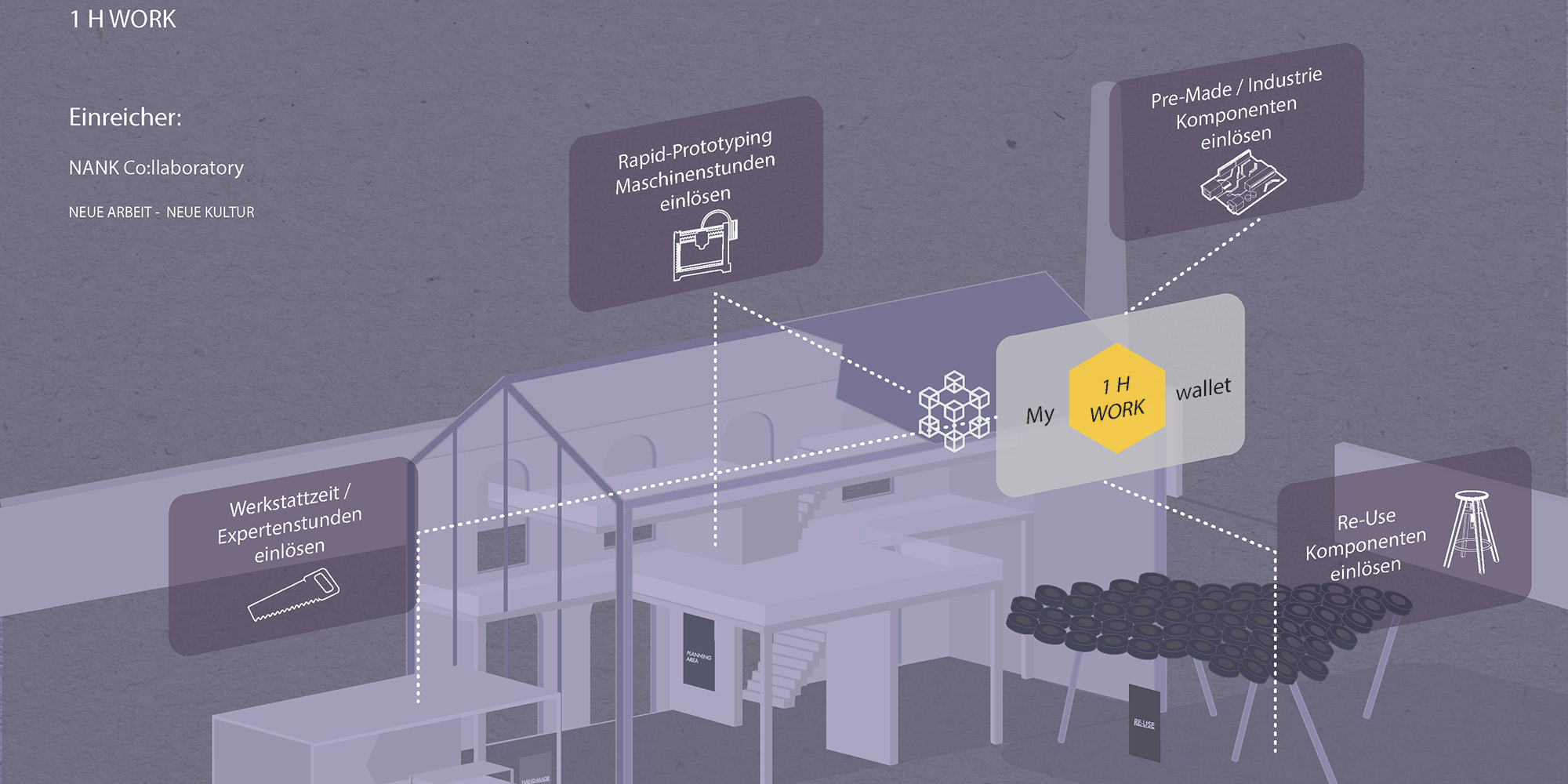
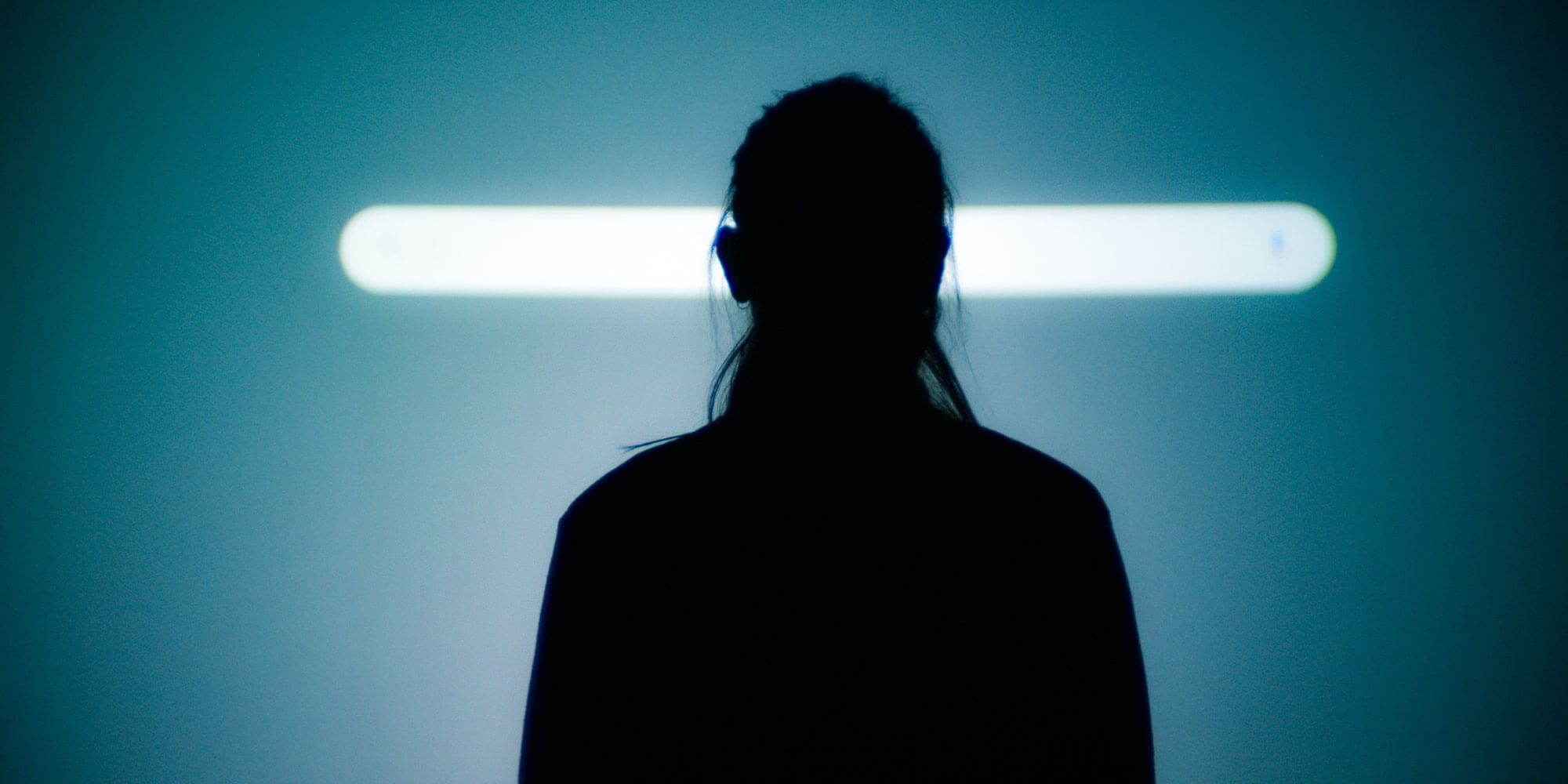
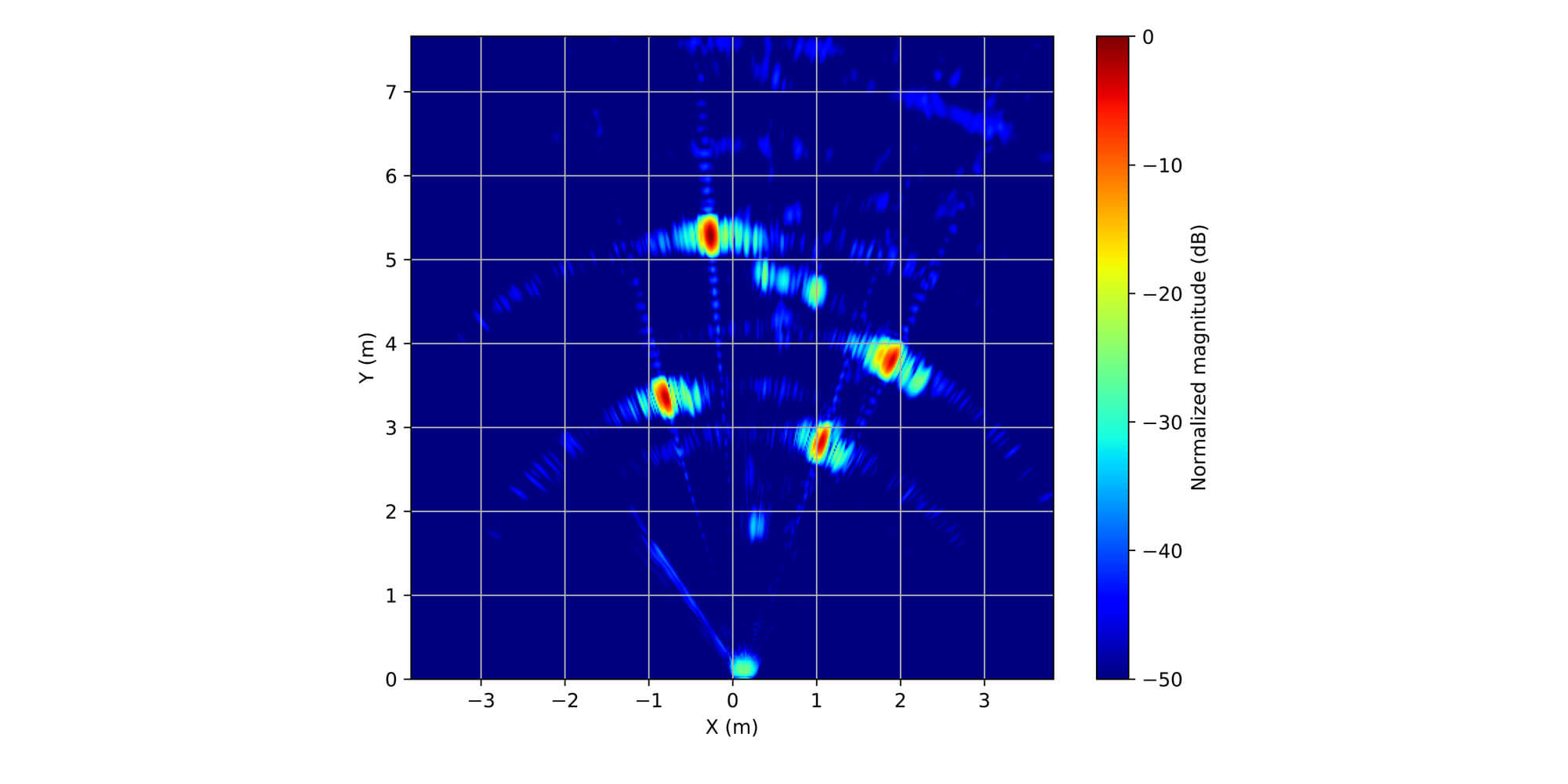
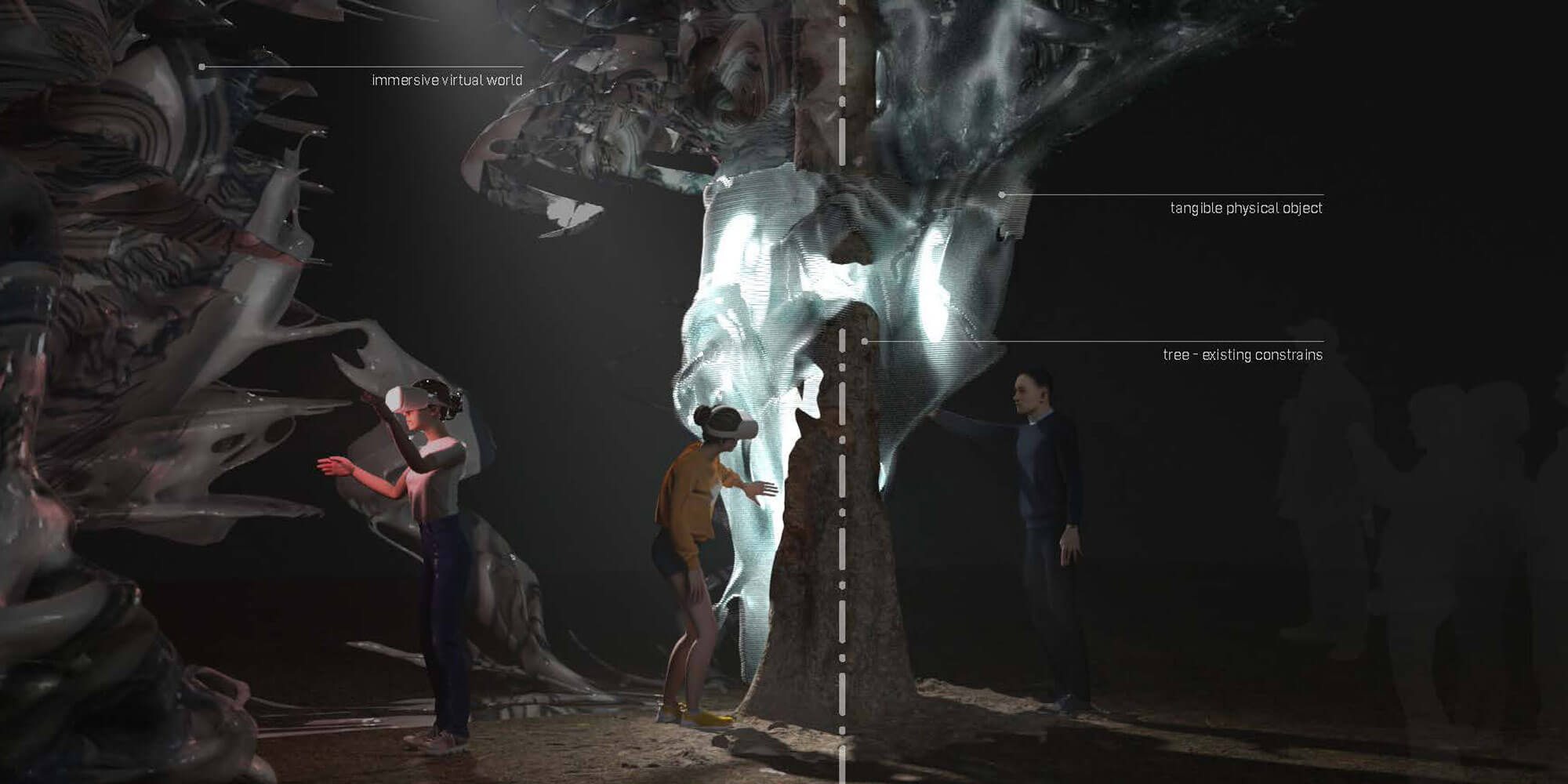
While our paths may often seem mysterious, it is certain that how we as a society deal with “the future,” how we talk about it, and how we think about it, plays a decisive role. In any case, artists suggest that we leave behind once and for all traditional hierarchies between the real and the potential and the thinking in binary categories such as “local – global”, “individual – collective” or “real – virtual” (“Triopic Spectacle“).
By the way, many projects of this theme exhibition spanning two buildings are the result of artist residencies offered and carried out within the framework of the “European ARTificial Intelligence Lab“1 initiated in 2018…
The ever-increasing automation and digitalization of our working and living environments, the future roles of humans and machines, the “human” and the meaning of creativity and art – these are the very big topics and questions that Ugo Dehaes then brings to the tableau with his lecture-performance “Simple Machines“. He tells the story of a choreographer who does everything he can to replace himself with technology. He creates machines that first mature in slimy cocoons, then slip out of them and take their first steps in a new world. Little by little, these robots become independent. Using machine learning, they train tirelessly and are soon able to walk, then dance and finally react to each other and together create and perform a show that the enraptured human audience applauds…

When the sun sets behind the JKU’s Somnium perched high above, it’s time to invite outstanding – human – artists onto the stage and into the spotlight. First on the program is the Award Ceremony, the festive prize-giving ceremony for the Prix Ars Electronica 2021. Immediately afterward, the “Big Concert Night“ will begin, which once again promises an extraordinary musical experience: the Bruckner Orchestra Linz, led by principal conductor Markus Poschner, the Company of Music, under the artistic direction of Johannes Hiemetsberger, and the Swiss sound artist Andres Bosshard will transform the Kepler’s Gardens into a fascinating world of sound that takes shape with Bruckner’s 9th Symphony and dissipates again with Ligeti’s “Lux Aeterna”.
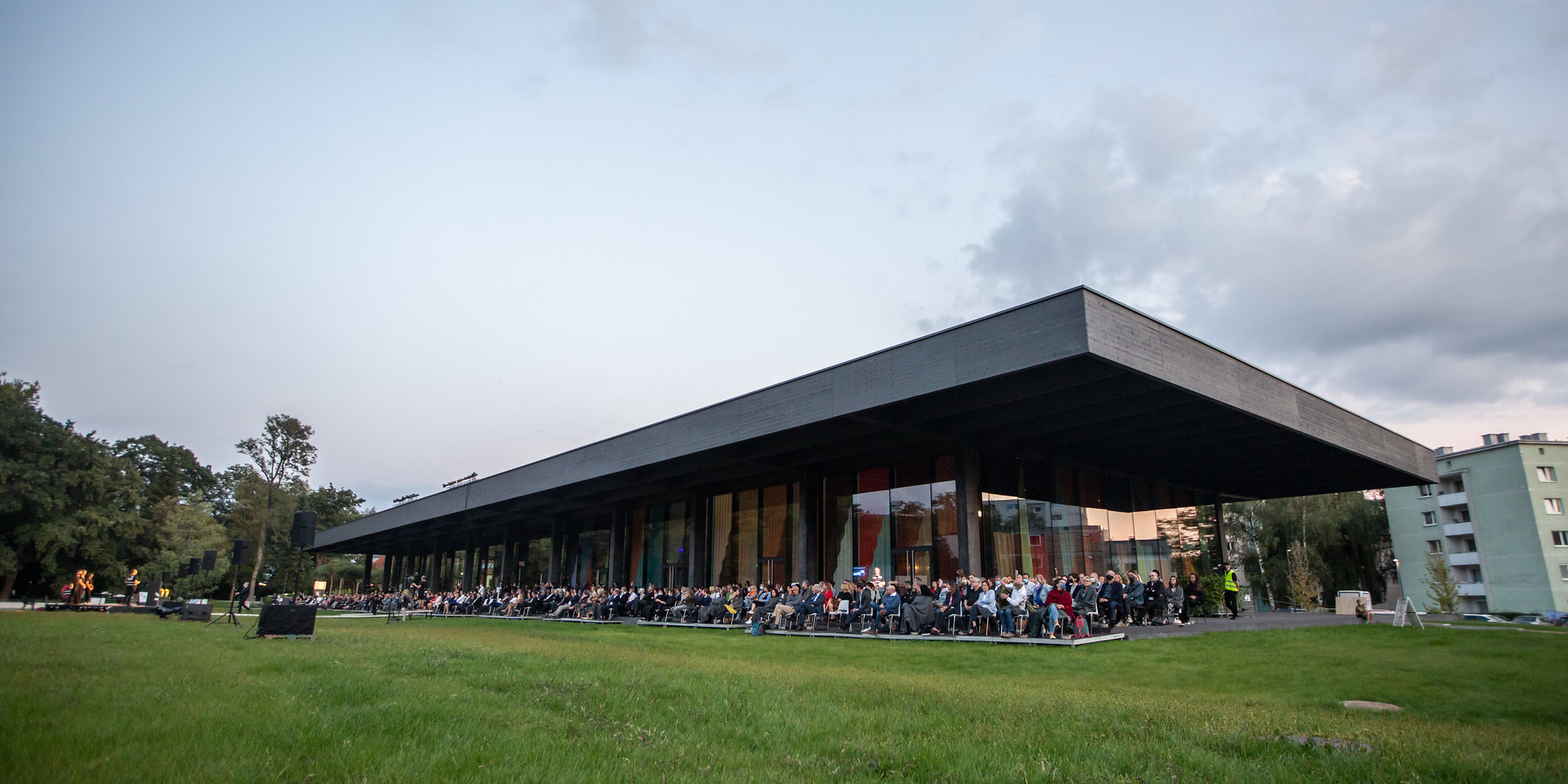
Saturday, Sept. 11, 2021 – The 21st century needs Digital Humanists!
Flipping the light switch is a thing of the past. With voice-controlled AI systems, such actions can be carried out in a much more contemporary manner. All it takes is an “Alexa!? …” or a “Siri!? …” and various smart assistants will prick up their ears, access Internet-based databases and turn the lights up and down for us, play music, show movies, order food or anything else that “others have also bought”. The question remains, do Alexa and Siri only listen to us when they’re supposed to? Their manufacturers say yes. But how credible is that?
In the age of Big Data and AI, we need to fundamentally clarify how we want to deal with our data, who owns it and who is allowed to determine how it is used. At the same time, this is just the tip of the iceberg. What is urgently needed is a broad social discourse on what a digital society can look like that leaves behind the “data capitalism” of the IT monopolists as well as the “data totalitarianism” of authoritarian regimes and respects the self-determination of its users. Cultural diversity instead of infrastructural uniformity, one could say in a nutshell. In any case, the result of such a discourse could be a “digital humanism” from which framework conditions and rules for the digital society of the 21st century could be derived. This is also the opinion and demand of the “European Platform for Digital Humanism,” to which Ars Electronica and a whole series of other renowned institutions in the European art and cultural landscape belong.
What the use of technologies such as AI means for us, what opportunities it opens up for us as a society, but also what problems we have to face in this context, is also the subject of another major EU project: the “European Artificial Intelligence Lab. The “AI Lab Conference Day” will provide insight into the current discourse on this topic. The program includes several panels on different topics: The first panel is dedicated to “Media Literacy”. Kyriaki Goni (GR), Meredith Broussard (US), Martina Mara (AT) and Kanta Dihal (NL) will speak, moderated by Katrin-Cécile Ziegler (DE). The second panel is all about music – Ali Nikrang (AT) moderates the conversation with Davide Quayola (IT), Paola Torres Núñez del Prado (PE), Leslie Garcia (MX). Panel #3 is about “Civil Society” – featuring Caroline Sinders (US/UK), Kilian Kleinschmidt (DE), Glacier Kwong (HK/DE), Simon Weckert (DE), moderated by Julia Kloiber (DE). The fourth and last panel of the full-day conference will focus on “Digital Feudalism” – Frederike Kaltheuner (DE/UK) will interview Mark Coeckelbergh (AT), Sophie Zhang (US), Dieter Offenhuber (AT) and Renata Avila (GT).
The fact that we live in a time of transition – not only challenging but also quite exciting – is also the topic of an unusual workshop. Adriana Knouf (US) invites us to consider the many, many small deviations and disruptions to our daily lives that emanate from the great general upheavals. The goal of her workshop: “Preparing to Become Transxxeno“!
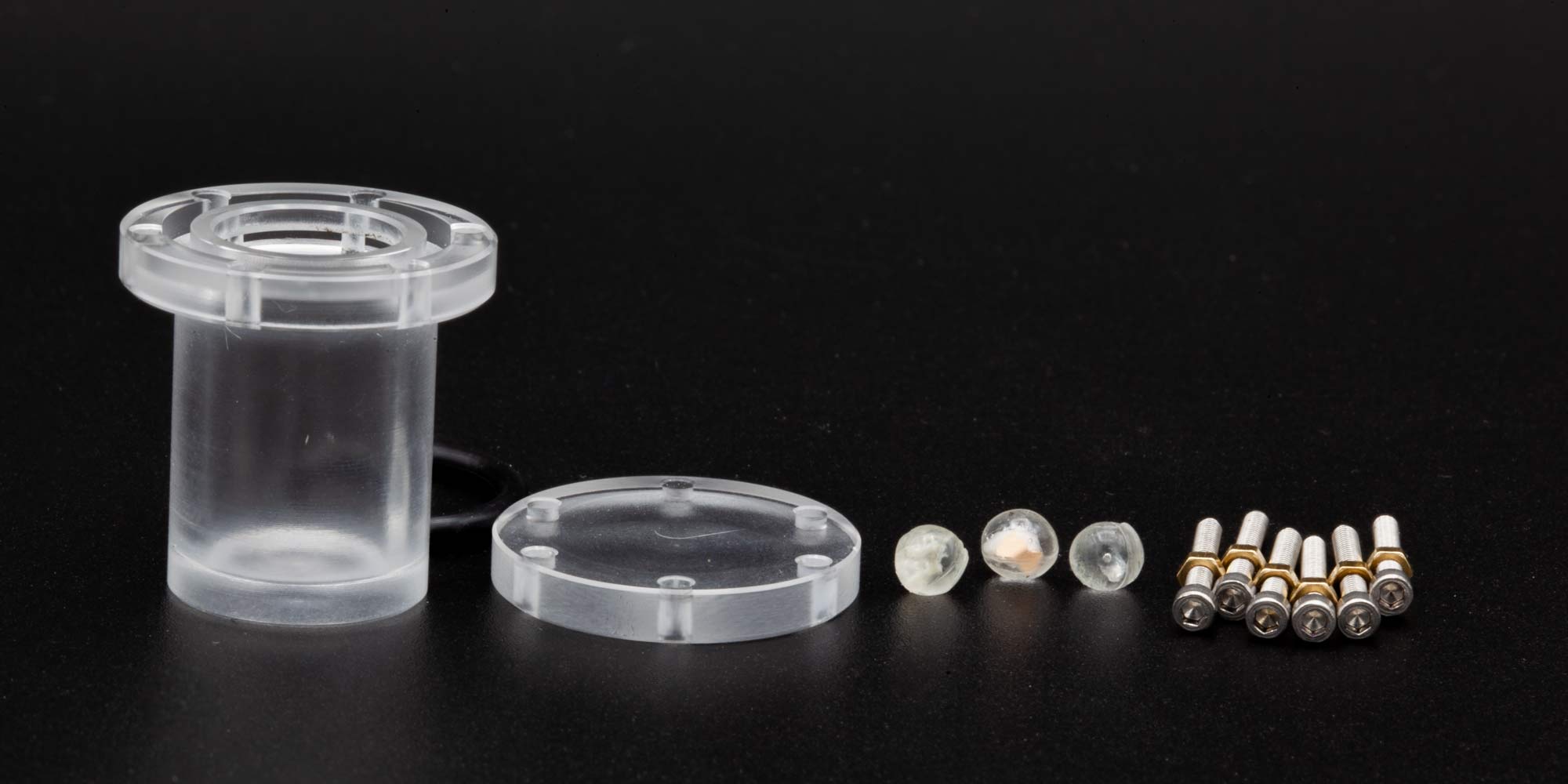
For what lies ahead, we therefore need the ability to act. But we also need room for maneuver. The latter will certainly not be granted to us voluntarily. On the contrary. We will have to demand this room for maneuver and – of course in accordance with democratic rules of the game – enforce them. The communities and activists that are usually referred to as “civil society” play a central role in this. Many of them, keyword Fridays for Future, are “under 19” and represent the first generation that is in danger of feeling the full brunt of climate change and its associated social, economic and political consequences.
As serious as it is lighthearted, this year’s edition of create your world is dedicated to the “New Digital Deal.” The great ideas and concepts buzzing around in young minds will be underscored first thing in the morning by the “u19 – CREATE YOUR WORLD Ceremony,” at which the winners of the Prix Ars Electronica will receive their prizes and, of course, the “Golden Nica.
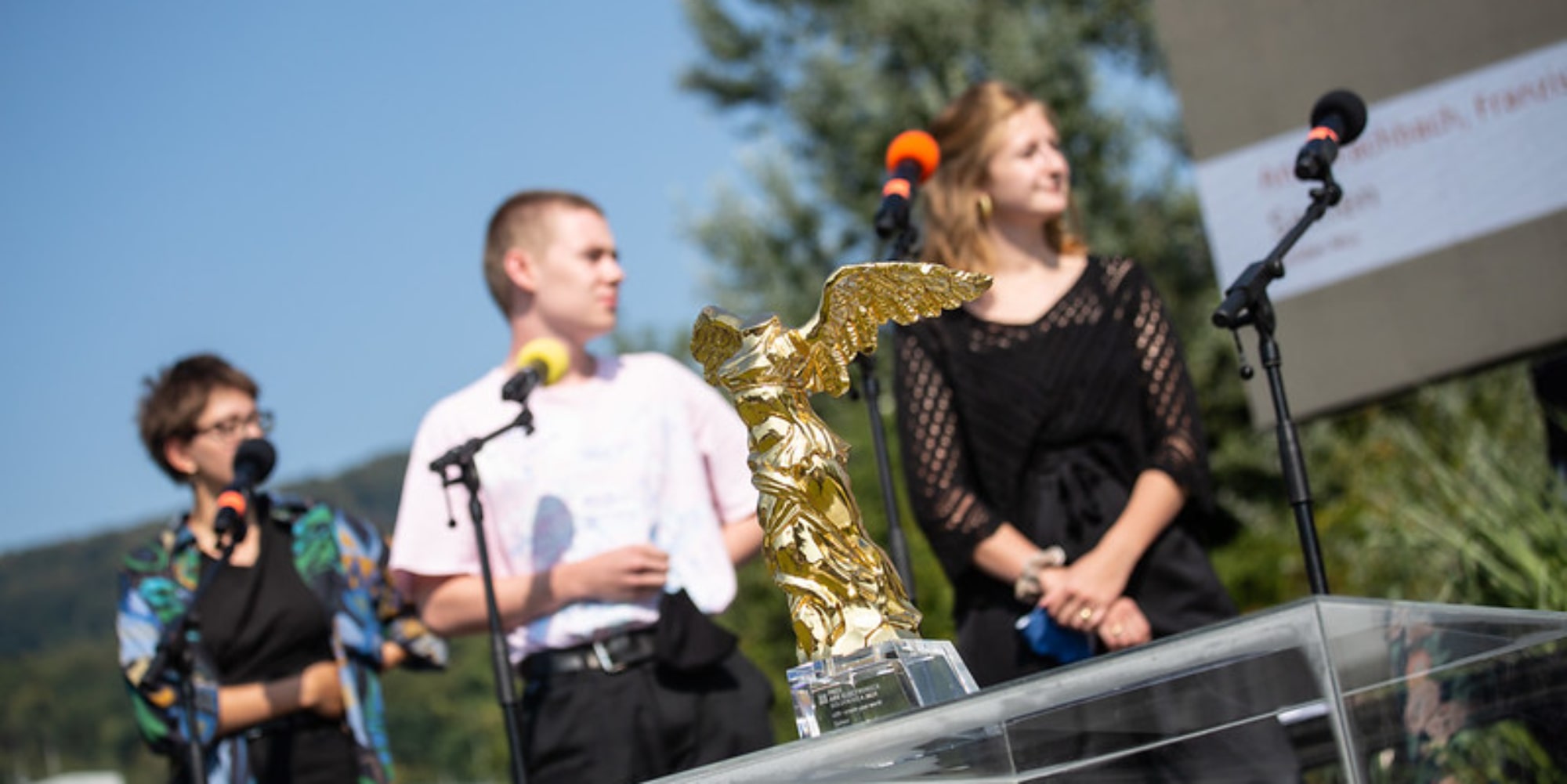
As a platform and playground, the “Festival within the Festival” offers young people above all the opportunity to exchange ideas about the present and the future, to network and to tackle joint projects. Laughter is allowed and trust should and can be built up – again.
Trust in each other and one’s own ideas also plays an important role in the day-long symposium “Co-Creation“, which is organized by the association ziwi – die Zivilgesellschaft (civil society). Participation alone is not enough, is the message, new strategies and spaces are urgently needed to develop, discuss and finally implement ideas together. While – indoors – lectures and best practice projects will be presented and discussed at the symposium, – outdoors – more than 60 initiatives, associations and organizations invite young and old to experience the diverse and sometimes unusual variants of voluntary engagement.
This creative, innovative and, in the best sense of the word, chaotic neighborhood of create your world, the ziwi and Festival University will be joined during the morning by organic farmers from all over Upper Austria. They offer products that first of all taste “damn good”, but at the same time also point out how important the ecosystem soil is not only for nature, but above all for ourselves.
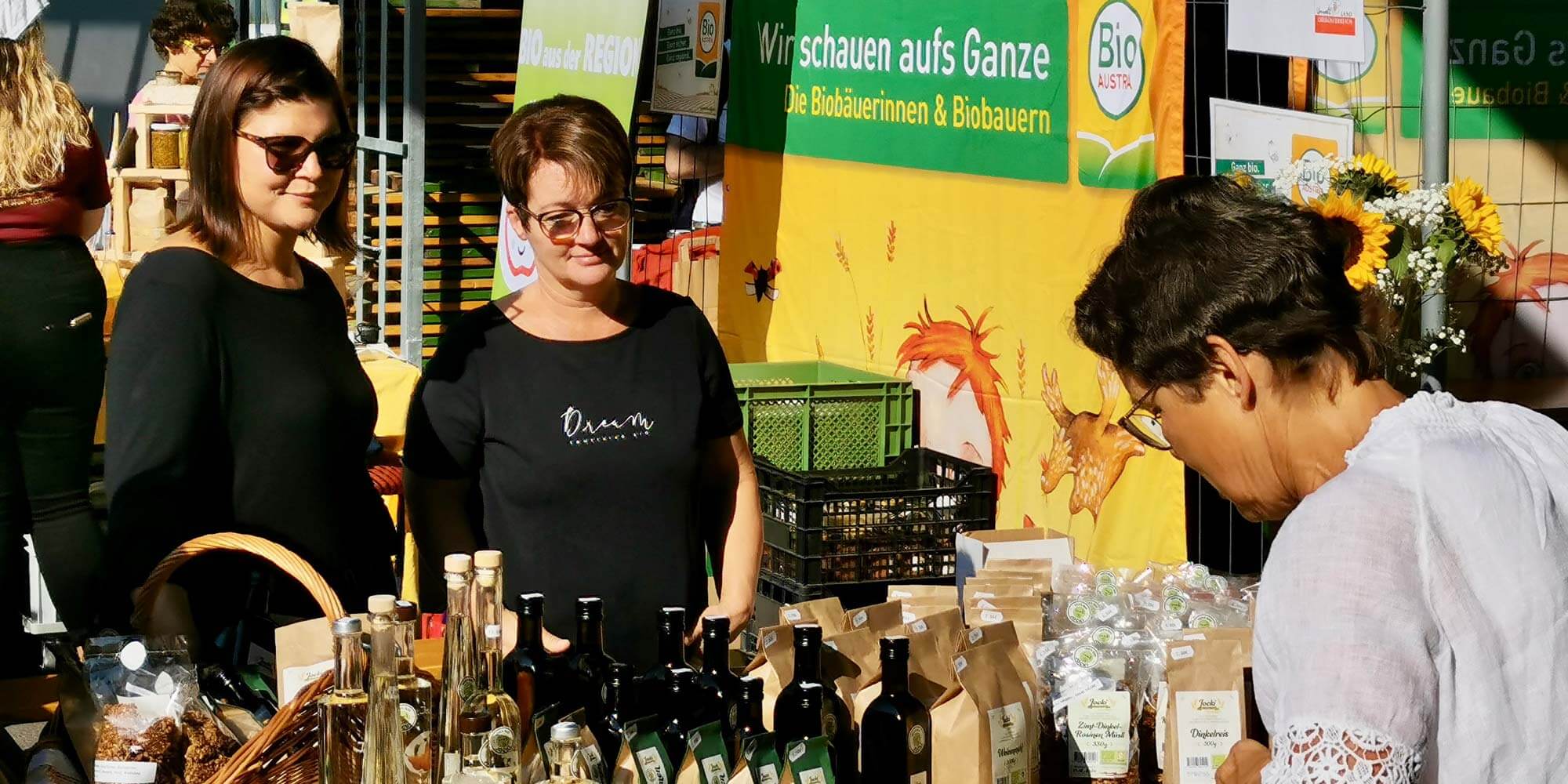
In the evening, concerts by “Frau Sammer” and Gregor Ladenhauf are first on the program in Kepler’s Garden, and later the “Linzer Klangwolke 21” attracts visitors to the banks of the Danube, in the park between the Brucknerhaus and the LENTOS Kunstmuseum. “PANTA RHEI” is the motto of the open-air production by Robert Dornhelm, Christoph Engel and Roman Kariolou, in which the boundaries between illusion and reality blur…
Sunday, Sept. 12, 2021 – End and Beginning
The last day of an Ars Electronica is never the end. Instead, it’s just the beginning (or so we hope time and again) of a series of new initiatives and projects that, inspired by the Festival for Art, Technology and Society, inspire and motivate people in their turn and elsewhere and turn them into fellow campaigners for a better future. People like the youngsters of create your world, the volunteers in the network of die ziwi association, the participants of the Festival University, the winners of the STARTS Prize2, the Awards for Digital Humanity and the Prix Ars Electronica, all of whom are doing something here and now because they’re tired of waiting for politics, industry or anyone else.
That’s why the Ars Electronica Festival 2021 is deliberately focusing once again on the artists, their thinking and, above all, their actions. It’s the day of the Prix Ars Electronica, when the winners of the Golden Nicas will talk – and not only – about their prize-winning projects (the latter, by the way, will be on display in the CyberArts show). The open discussions between a member of the renowned Prix jury and the winners of the various competition categories do not shy away from big questions: How do we imagine the future interaction of humans and machines? What role do technologies like AI play in creative processes and how do they affect art itself? In the Prix Forum “Computer Animation” Helen Starr and Guangli Liu (Golden Nica/ When the Sea Sends Forth a Forest), Veneta Androva (Award of Distinction / AIVA) and Erick Oh (Award of Distinction / Opera) talk about “The Re-enchantment of Humanism”, in the Prix Forum “Digital Musics & Sound Art” Cedrik Fermont and Alexander Schubert (Golden Nica/ Convergence) speak, Rashin Fahandej (Award of Distinction / A Father’s Lullaby) and Douglas McCausland (Award of Distinction / Convergence) on “A Pandemic Didn’t Stop the Sound” and in the Prix Forum “AI & LifeArt” Jens Hauser and Samaneh Moafi / Forensic Architecture (Golden Nica/ Cloud Studies), masharu (Award of Distinction / The Museum of Edible Earth) and tranxxeno lab / Adriana Knouf (Award of Distinction / TX-1) with “Im/Material Infrastructures”.
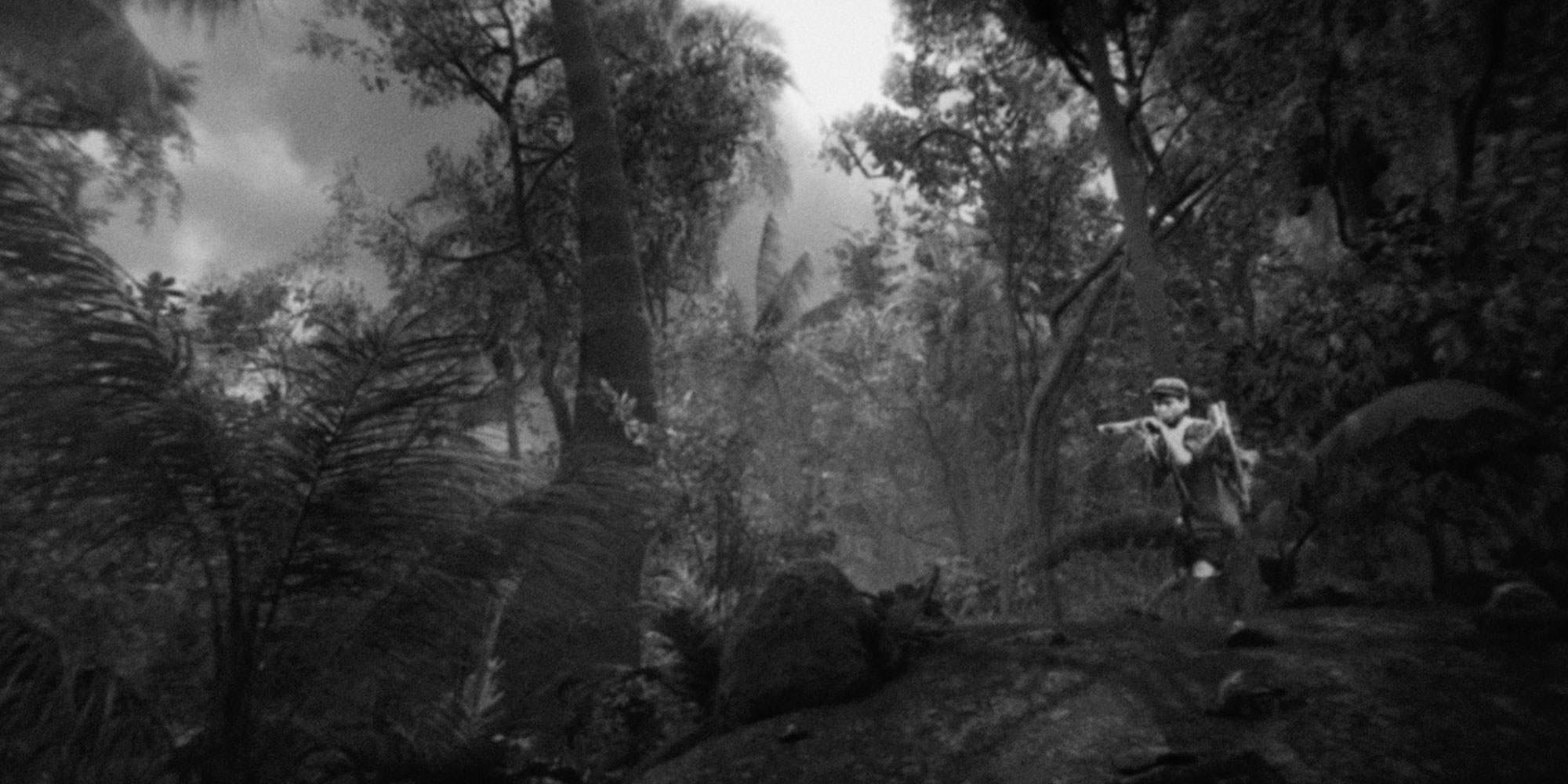

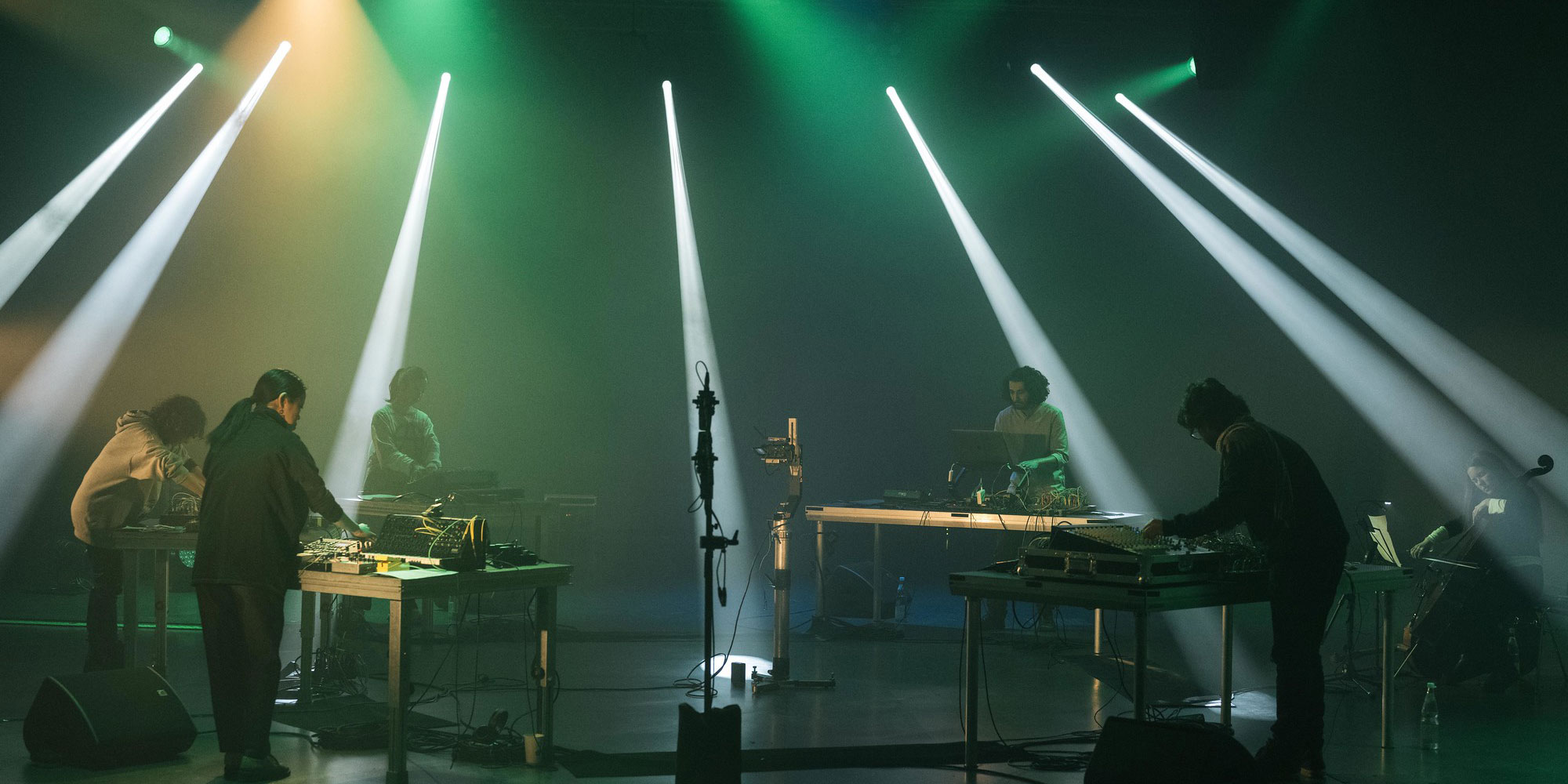

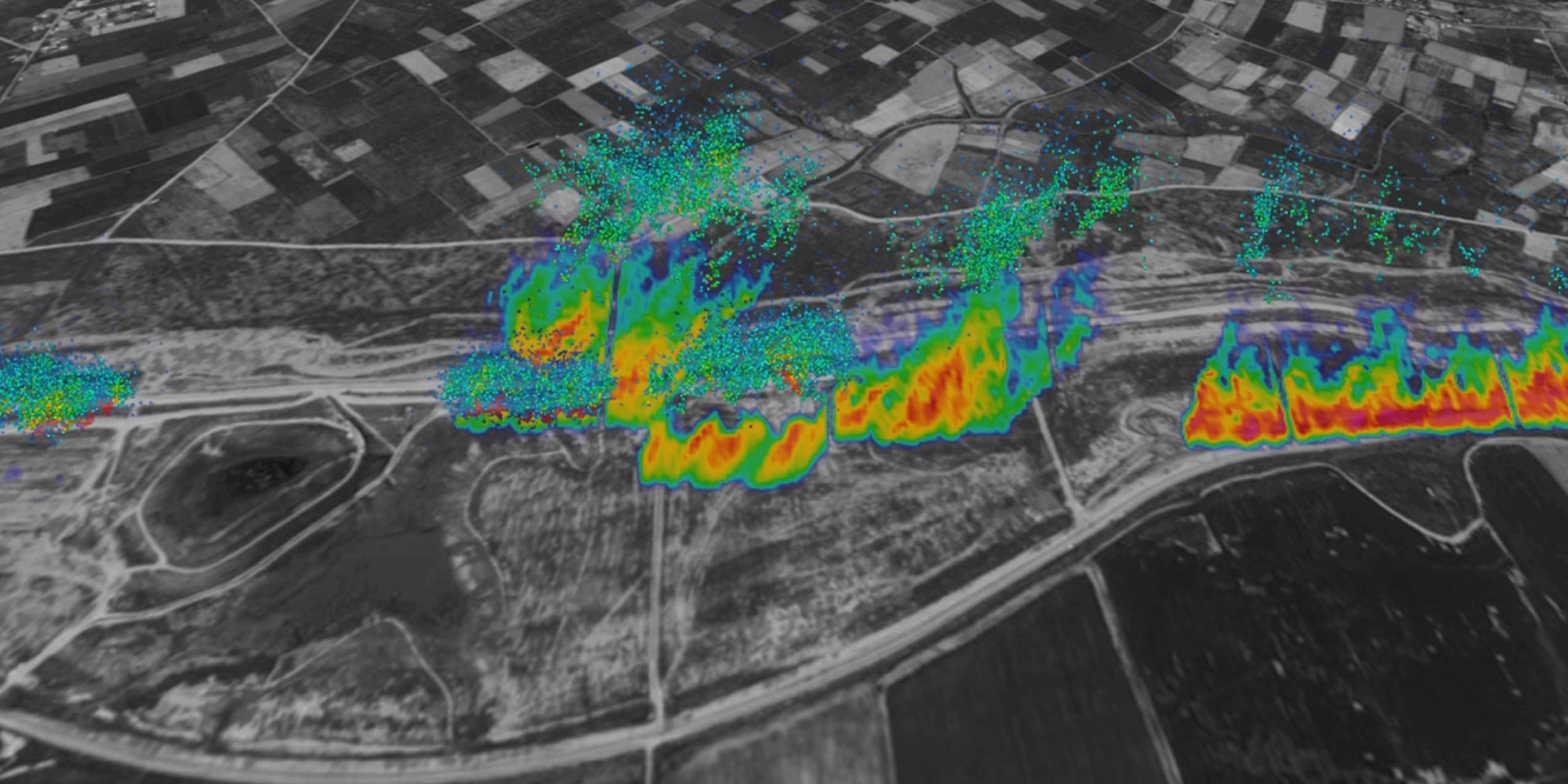

How the thinking and methods of art can contribute to social development will then be the focus of the “Art Thinking Forum” held jointly with Hakuhodo. Moderator Hideaki Ogawa (JP) talks with Karen Palmer (UK), Dominique Chen (FR) and John Palmesino (IT) as well as Ann-Sofi Rönnskog (FI) from Territorial Agency about how art can give us orientation, bring people from different sectors and milieus together and inspire them, and how it can address social issues and stimulate broad debate about them, especially in times of fundamental upheaval.
The virtuosity with which artists tell stories about our (living) world and, in doing so, put their proverbial finger in our wound(s) can be seen year after year at the Ars Electronica Animation Festival. The best example is Guangli Liu, this year’s winner of the Prix Ars Electronica in the “Animations” category: With “When the Sea Sends Forth a Forest,” he dedicates himself to the forgotten history of Cambodia’s Chinese community, which was persecuted, expelled and killed by the Khmer Rouge and abandoned by China in all of this. Guangli Liu virtuously interweaves Khmer Rouge propaganda videos with the horror images that went around the world after their fall and 3D representations of a game engine. The result is not a judgment on history, but a virtual space where past and present enter into a dialogue: The ocean of forgetting is to give way to a forest of personal memories of the Khmer Rouge era and the tragic fate of its countless victims.
Without exception, outstanding actors from the international media art scene will once again demonstrate on this Sunday of the festival the virtuoso way in which they can touch, seduce, provoke and shake us up. And who knows, maybe in the end it will be the artists who motivate the “rational human being” to do what rationality suggests to him or her anyway – to finally tackle the “New Digital Deal”.
1 The European ARTificial Intelligence Lab is co-funded by the Creative Europe Programme of the European Union and the Austrian Federal Ministry for Arts, Culture, Civil Service and Sport.
2 The STARTS Prize has received funding from the European Union’s Horizon 2020 research and innovation programme under grant agreement No 956603.